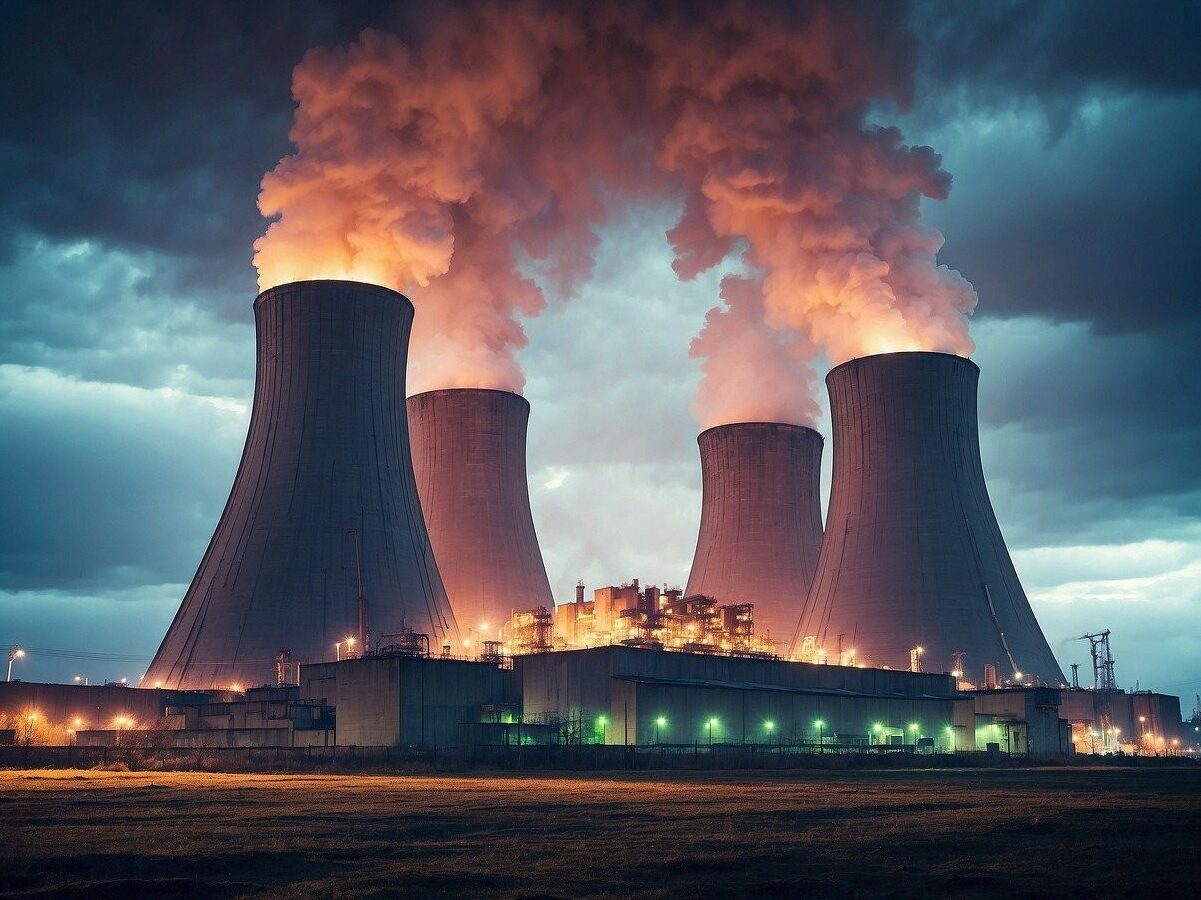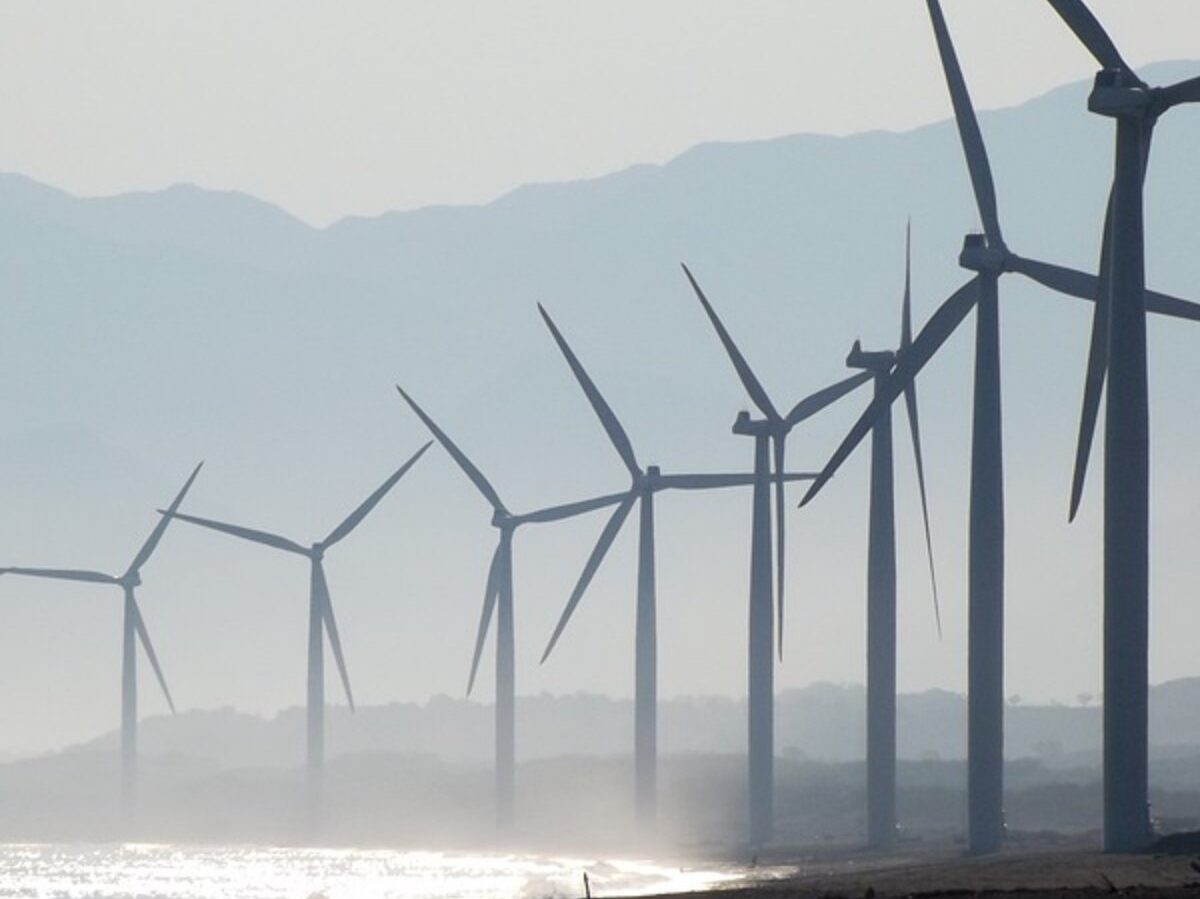7 Key Advantages of Hydropower Unveiled
The advantages of hydropower stand as a testament to the harmonious marriage between nature and technology, symbolizing the ingenuity of humanity in harnessing the immense power of flowing water. Its tranquil surface belies the intricate machinery and engineering marvels that lie beneath, blending seamlessly with the natural landscape to create a synergy that benefits both the environment and society.
As we delve into the depths of the advantages of hydropower, we uncover a treasure trove of benefits that underscore its pivotal role in shaping our sustainable energy future. Beyond its serene surface, hydropower offers a multitude of benefits that resonate across various facets of our lives and the planet we inhabit.
Renewable Energy Source Advantages of Hydropower
At the heart of the advantages of hydropower lies its inherent renewability, a fundamental characteristic that distinguishes it from finite fossil fuels and underscores its significance in the transition towards a more sustainable energy future. Derived from the perpetual flow of water, whether sourced from rivers, streams, or oceans, hydropower harnesses nature’s ceaseless cycle to generate electricity, serving as a timeless tribute to the resilience and abundance of our planet’s hydrological systems.
Unlike fossil fuels, which are finite and non-renewable, water is an abundant resource, replenished by precipitation and runoff, ensuring a continuous and sustainable energy supply for generations to come. This inexhaustible supply of water serves as a cornerstone of the advantages of hydropower’s longevity, offering a reliable and enduring source of clean energy that is impervious to the fluctuations and uncertainties inherent in fossil fuel extraction and consumption.
The advantages of hydropower’s renewable nature aligns seamlessly with our collective aspirations for a more sustainable and equitable future, where energy access is not only reliable and affordable but also environmentally responsible and socially inclusive. By prioritizing renewable energy sources like hydropower, we can mitigate the adverse impacts of climate change, reduce our dependence on fossil fuels, and pave the way for a cleaner, greener, and more resilient energy system that benefits both present and future generations.
In addition, the advantages of hydropower’s status as a renewable energy source embodies the principles of sustainability, innovation, and stewardship that are essential for navigating the complex challenges of energy production. By tapping into the boundless power of water, we can unlock a brighter and more sustainable future for ourselves and for the planet, where clean energy serves as a catalyst for progress, prosperity, and planetary health.
Flowing Clean Energy
In an era plagued by environmental concerns, the cleanliness of energy sources takes precedence, as society grapples with the urgent need to address the escalating threats of climate change and air pollution. In this critical context, the advantages of hydropower emerges as a beacon of hope and a stalwart champion of environmental stewardship. With its impeccable track record of minimal environmental impact, hydropower stands as a shining example of clean energy generation, offering a sustainable alternative to fossil fuels that is both ecologically responsible and socially beneficial.
At its core, the advantages of hydropower cleanliness lies in its remarkable ability to generate electricity without emitting significant amounts of greenhouse gases or harmful pollutants into the atmosphere. Unlike its fossil fuel counterparts, which release vast quantities of carbon dioxide, sulfur dioxide, nitrogen oxides, and other pollutants when burned for energy, hydropower relies on the kinetic energy of flowing water to turn turbines and generate electricity, producing negligible emissions in the process. This inherent cleanliness not only mitigates air pollution and improves air quality but also helps to curb the deleterious effects of climate change, thereby safeguarding the health and well-being of both humans and ecosystems.
Environmental Benefits
Moreover, the advantages of hydropower’s cleanliness extends beyond its direct emissions to encompass broader environmental benefits that resonate across various scales and ecosystems. By reducing our reliance on fossil fuels and transitioning to cleaner sources of energy like hydropower, we can mitigate the adverse impacts of resource extraction, combustion, and waste disposal associated with conventional energy production, thereby conserving natural resources, protecting biodiversity, and preserving ecological integrity for future generations.
Furthermore, the advantages of hydropower’s cleanliness is not just a matter of environmental concern but also a cornerstone of public health and social justice. By reducing air pollution and mitigating climate change, hydropower helps to alleviate the burden of respiratory illnesses, cardiovascular diseases, and other health ailments linked to fossil fuel combustion, particularly in vulnerable communities disproportionately affected by environmental pollution and socio-economic disparities. In this way, hydropower serves as a catalyst for promoting environmental justice, equitable access to clean air and water, and sustainable development that benefits all members of society.
In conclusion, the advantages of hydropower’s status as a clean energy source underscores its pivotal role in fostering a cleaner, healthier, and more sustainable planet for all. By harnessing the power of flowing water to generate electricity, we can embrace a future where clean energy serves as a catalyst for progress, prosperity, and planetary well-being, ushering in an era of environmental resilience, social equity, and shared prosperity for generations to come.

Advantages of Hydropower’s Reliability and Predictability
One of the most salient advantages of hydropower lies in its unwavering reliability and predictability, attributes that distinguish it as a cornerstone of energy stability and grid resilience in an era marked by increasing variability and uncertainty in weather patterns and energy demand. Unlike solar or wind power, which are inherently intermittent and subject to the whims of nature, hydropower offers a steady stream of electricity generation that remains unaffected by the vagaries of weather or time of day.
At the heart of the advantages of hydropower’s reliability is the consistent and dependable flow of water, which serves as the primary driver of electricity generation in hydroelectric plants. Whether sourced from rivers, streams, or reservoirs, this abundant and renewable resource provides a reliable energy supply that can be harnessed year-round in most regions, regardless of seasonal changes or fluctuations in weather conditions. This inherent predictability enables hydropower plants to operate at high capacity factors and maintain consistent levels of electricity generation, thereby bolstering grid stability and ensuring a reliable power supply to meet the needs of consumers, industries, and communities.
The advantages of hydropower’s status as a reliable and predictable energy source underscores its pivotal role in shaping our energy future, where stability, resilience, and sustainability are paramount. By tapping into the steady flow of water, we can unlock a renewable and resilient energy source that powers progress, prosperity, and resilience for generations to come, ensuring a better and more sustainable future for all.
The Advantages of Hydropower’s Flexibilty
Adaptability is the hallmark of a resilient energy system, and the advantages of hydropower epitomizes this trait with its innate flexibility, serving as a linchpin in the dynamic interplay between energy supply and demand. Equipped with the remarkable ability to swiftly adjust output in response to fluctuations in demand, hydropower plants offer unparalleled grid management capabilities that are essential for maintaining equilibrium in the ever-evolving landscape of electricity generation and consumption.
At the heart of the advantages of hydropower’s flexibility lies its unique capacity to modulate electricity production according to real-time changes in demand, a feat made possible by the controllable nature of water flow and turbine operations. Whether ramping up production during peak hours to meet surging demand or scaling back during periods of reduced consumption, hydropower plants possess the agility and responsiveness needed to fine-tune their output in alignment with the ebb and flow of energy demand, thereby optimizing grid stability and ensuring a reliable power supply to consumers, industries, and critical infrastructure.
Grid Management Adaptation
Moreover, the advantages of hydropower’s flexibility extends beyond its immediate role in grid management to encompass broader socio-economic and environmental benefits that resonate across various sectors of society. By providing grid operators with the ability to balance supply and demand in real time, hydropower enables the integration of intermittent renewable energy sources like solar and wind power, smoothing out fluctuations in generation and enhancing grid reliability and resilience.
The advantages of hydropower’s flexibility is not just a matter of technological prowess but also a reflection of its adaptability to evolving energy landscapes and regulatory frameworks. By embracing innovative technologies and market mechanisms, hydropower operators can optimize their operations, maximize efficiency, while simultaneously reducing greenhouse gas emissions and enhancing environmental sustainability.
In essence, the advantages of hydropower’s status as a flexible and adaptable energy source underscores its pivotal role in shaping our energy future, where stability, resilience, and sustainability are paramount. By harnessing the power of flowing water to meet the dynamic demands of modern society, we can unlock a renewable and resilient energy source that powers progress, prosperity, and resilience for generations to come.
Long Lifespan Benefits
In the realm of infrastructure, longevity is a prized attribute, and the advantages of hydropower infrastructure boasts an impressive lifespan that stands as a testament to its enduring reliability and resilience. From the sturdy concrete structures of dams to the robust turbines housed within powerhouses, every component of hydropower plants is engineered to withstand the test of time, offering decades of dependable service with proper maintenance and care.
The advantages of hydropower’s long lifespan is the meticulous design and construction of its infrastructure, which prioritizes durability, strength, and resilience to withstand the forces of nature and the rigors of daily operation. Whether it’s the massive concrete walls of a dam, designed to withstand the immense pressure of water reservoirs, or the precision-engineered turbines and generators housed within powerhouses, built to endure the relentless rotation and torque of flowing water, every aspect of hydropower infrastructure is crafted with longevity in mind.
Industry Commitment
The advantages of hydropower’s long lifespan is not just a matter of sturdy construction but also a reflection of the industry’s commitment to ongoing maintenance, inspection, and rehabilitation efforts that ensure the continued performance and safety of hydropower facilities over time. Through regular inspections, repairs, and upgrades, operators can identify and address potential issues before they escalate, prolonging the lifespan of equipment and infrastructure and minimizing the risk of unexpected failures or downtime.
Additionally, the enduring advantages of hydropower infrastructure contributes to its economic viability and environmental sustainability, as the upfront investment in construction and installation is amortized over a prolonged period, resulting in low long-term operating costs and high return on investment. The long lifespan of hydropower plants reduces the need for frequent replacements or upgrades, thereby minimizing the environmental footprint associated with resource extraction, manufacturing, and disposal.
Summarized, the advantages of hydropower’s long lifespan underscores its status as a reliable and resilient energy source that can weather the passage of time and deliver consistent performance year after year. By investing in durable infrastructure and ongoing maintenance, we can ensure that hydropower continues to power progress, prosperity, and sustainability for generations to come, serving as a cornerstone of our energy future and a symbol of human ingenuity in harmony with nature.
Economic Advantages of Hydropower
Beyond its environmental merits, the advantages of hydropower exerts a significant economic impact, infusing vitality into local communities and economies while catalyzing sustainable growth and development. The transformative influence of hydropower extends far beyond its role as a clean energy source, encompassing a wide array of socio-economic benefits that resonate across diverse sectors and regions.
The advantages of hydropower’s economic contribution lies in its capacity to create jobs and generate income, particularly in regions where energy resources are abundant and economic opportunities are scarce. From construction and installation to operation and maintenance, hydropower projects create a myriad of employment opportunities across the entire project lifecycle, spanning a range of skill levels and disciplines. Whether it’s engineers designing innovative turbines, technicians performing routine inspections, or local laborers contributing to infrastructure development, the workforce mobilized by hydropower projects plays a pivotal role in driving economic activity and prosperity in surrounding communities.
Low Operating Costs
While the upfront costs of hydropower infrastructure may present a substantial investment, the long-term economic advantages of hydropower it offers are undeniable. Once the initial construction is complete, hydropower plants boast remarkably low operating costs compared to many other forms of energy generation, ensuring sustained cost-effectiveness and financial viability throughout their operational lifespan. This characteristic positions hydropower as a prudent and reliable investment that delivers enduring value and returns for both investors and consumers alike.
The low operating costs advantages of hydropower stem from several key factors. Firstly, the fuel source for hydropower generation—water—is abundant, renewable, and free, eliminating the need for ongoing fuel purchases and minimizing fuel-related expenses. Unlike fossil fuel-based power plants, which incur significant costs associated with fuel extraction, transportation, and combustion, hydropower plants harness the kinetic energy of flowing water, generating electricity with minimal resource inputs and environmental impact.
Hydropower plants require relatively little ongoing maintenance compared to other energy technologies, thanks to their robust and durable infrastructure. Once constructed, the advantages of hydropower facilities typically operate for several decades with routine inspections, repairs, and upgrades, ensuring continued performance and reliability over time. This translates into lower maintenance costs and reduced downtime, further enhancing the cost-effectiveness of hydropower generation compared to alternative energy sources.
The low operating cost advantages of hydropower underscore its status as a financially prudent and environmentally sustainable energy option that delivers long-term value and benefits for society as a whole. By leveraging the inherent advantages of water as a renewable resource, hydropower offers a pathway to a cleaner, more affordable, and more resilient energy future, ensuring a better and more prosperous tomorrow for generations to come.
Economic Opportunities
The advantages of hydropower projects have the potential to stimulate tourism and recreational opportunities, drawing visitors from near and far to explore the natural beauty and cultural heritage associated with dam reservoirs, river landscapes, and hydroelectric facilities. Whether it’s boating on a scenic reservoir, fishing in a pristine river, or hiking along a picturesque trail, the recreational amenities offered by hydropower projects create new avenues for economic diversification and revenue generation, bolstering local economies and enhancing quality of life for residents and visitors alike.
Furthermore, the advantages of hydropower extend beyond direct employment and tourism to encompass broader infrastructure development and investment opportunities that catalyze sustainable growth and prosperity in host communities. From roads and bridges to schools and hospitals, hydropower projects often necessitate the construction of critical infrastructure that not only supports project operations but also lays the foundation for long-term socio-economic development, enabling communities to thrive in harmony with their natural surroundings.
The advantages of hydropower’s economic impact transcends its role as a renewable energy source, embodying the transformative potential of sustainable development to uplift communities, empower individuals, and foster prosperity for generations to come. By harnessing the power of water, communities can unlock a wealth of economic opportunities that promote inclusive growth, resilience, and vitality, ensuring that hydropower remains a cornerstone of our energy future and a catalyst for progress and prosperity worldwide.
Energy Independence Advantages of Hydropower
In an era marked by geopolitical tensions and fluctuating energy markets, the quest for energy independence emerges as a strategic imperative for nations seeking to safeguard their sovereignty and resilience against external vulnerabilities. In this context, the advantages of hydropower stands as a linchpin in the pursuit of energy security, offering a reliable and domestically sourced alternative to imported fossil fuels that mitigates the risks associated with geopolitical instability and market volatility.
The advantages of hydropower’s contribution to energy independence lies in its reliance on abundant and renewable water resources that are often sourced domestically, enabling nations to assert greater control over their energy destiny and reduce dependence on foreign oil and gas imports. By harnessing the power of flowing water within their borders, countries can diversify their energy mix and strengthen their energy resilience, insulating themselves from the geopolitical risks and supply disruptions that often characterize global fuel markets.
Energy Storage
In an era where renewable energy sources are gaining prominence, the demand for effective energy storage solutions has reached new heights. Here, the advantages of hydropower reservoirs emerge as colossal energy storage systems, offering a robust mechanism to store excess energy during periods of low demand and release it when demand peaks. This unique capability not only addresses the intermittency inherent in renewable energy sources like wind and solar but also enhances the reliability and resilience of the grid, ensuring a stable and uninterrupted supply of electricity for consumers and industries alike.
The significance advantages of hydropower in energy storage lies in its ability to harness the gravitational potential energy of water stored in reservoirs, converting it into electricity on demand. During times of surplus energy production, such as windy nights or sunny days, excess electricity generated from renewable sources can be used to pump water uphill, effectively storing it as potential energy in the reservoir. When electricity demand rises or renewable energy production declines, the stored water can be released back down through turbines to generate electricity, thereby balancing supply and demand in real time and stabilizing the grid.
In essence, the advantages of hydropower’s role in enhancing energy independence transcends its immediate benefits as a renewable energy source, embodying the principles of sovereignty, resilience, and cooperation that are essential for navigating the complex challenges of energy distribution. By harnessing the power of flowing water to meet their energy needs, nations can assert greater control over their energy destiny, mitigate geopolitical risks, and fortify their resilience in the face of external shocks, ensuring a better and more secure future for themselves and future generations.
Summary
In conclusion, the advantages of hydropower cascade as abundantly as the waters from which it derives its potency. Its significance transcends mere electricity generation, embodying a holistic approach to sustainability that harmonizes with our environment and energizes our future. With its renewable essence, hydropower not only taps into nature’s perpetual flow but also epitomizes our quest for clean energy solutions that mitigate climate change and preserve our planet for future generations.
Beyond its green credentials, the advantages of hydropower’s reliability stands as a bedrock of energy security in an era characterized by uncertainty. Its unwavering supply of electricity, impervious to the whims of weather or time of day, underpins grid stability and resilience, offering a steadfast anchor amidst fluctuating energy landscapes. Coupled with its remarkable flexibility, hydropower enables seamless integration of intermittent renewables, ensuring a smooth transition towards a low-carbon future while mitigating risks associated with supply-demand imbalances.
Moreover, the economic advantages of hydropower ripple far beyond its reservoirs, invigorating local economies and fostering prosperity. From job creation and infrastructure development to tourism and recreational opportunities, hydropower projects catalyze growth in communities near and far, bolstering livelihoods and nurturing resilience against economic uncertainties. This economic vitality, coupled with its low operating costs, underscores hydropower’s role as a prudent investment that yields enduring dividends for society as a whole.
As we confront the multifaceted challenges of today, let us not overlook the transformative advantages of hydropower to propel us towards a better, greener future. By harnessing the power of water in all its forms—rivers, reservoirs, and oceans—we can navigate the currents of change with resilience and optimism. Hydropower is a symbol of sustainability, that can guide us towards a future where clean energy powers progress, prosperity, and preservation for generations to come.
If you found this post insightful, make sure to explore our other articles: “Harvesting the Breeze: Unveiling the Advantages of Wind Power“, “Problems with Lithium Batteries in Cars: What You Need to Know“, “Unveiling the Benefits: The Advantages of Nuclear Power“
Learn more: Vattenfall


